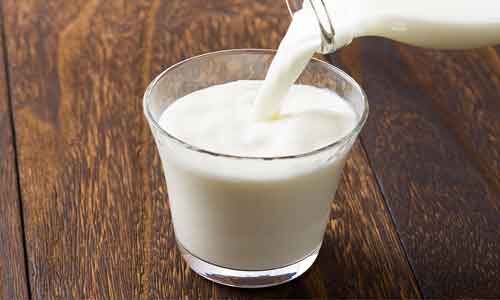- Home
- Medical news & Guidelines
- Anesthesiology
- Cardiology and CTVS
- Critical Care
- Dentistry
- Dermatology
- Diabetes and Endocrinology
- ENT
- Gastroenterology
- Medicine
- Nephrology
- Neurology
- Obstretics-Gynaecology
- Oncology
- Ophthalmology
- Orthopaedics
- Pediatrics-Neonatology
- Psychiatry
- Pulmonology
- Radiology
- Surgery
- Urology
- Laboratory Medicine
- Diet
- Nursing
- Paramedical
- Physiotherapy
- Health news
- Fact Check
- Bone Health Fact Check
- Brain Health Fact Check
- Cancer Related Fact Check
- Child Care Fact Check
- Dental and oral health fact check
- Diabetes and metabolic health fact check
- Diet and Nutrition Fact Check
- Eye and ENT Care Fact Check
- Fitness fact check
- Gut health fact check
- Heart health fact check
- Kidney health fact check
- Medical education fact check
- Men's health fact check
- Respiratory fact check
- Skin and hair care fact check
- Vaccine and Immunization fact check
- Women's health fact check
- AYUSH
- State News
- Andaman and Nicobar Islands
- Andhra Pradesh
- Arunachal Pradesh
- Assam
- Bihar
- Chandigarh
- Chattisgarh
- Dadra and Nagar Haveli
- Daman and Diu
- Delhi
- Goa
- Gujarat
- Haryana
- Himachal Pradesh
- Jammu & Kashmir
- Jharkhand
- Karnataka
- Kerala
- Ladakh
- Lakshadweep
- Madhya Pradesh
- Maharashtra
- Manipur
- Meghalaya
- Mizoram
- Nagaland
- Odisha
- Puducherry
- Punjab
- Rajasthan
- Sikkim
- Tamil Nadu
- Telangana
- Tripura
- Uttar Pradesh
- Uttrakhand
- West Bengal
- Medical Education
- Industry
Cow milk protein beta-lactoglobulin protects against allergies: Study

Numerous studies have shown that drinking natural, unprocessed cow's milk in early childhood protects against the development of immunoglobulins E (IgE), which are responsible for allergy symptoms.
Researchers at MedUni Vienna's Institute for Pathophysiology and Allergy Research and the inter-university Messerli Research Institute—a joint institution of Vetmeduni Vienna, the Medical University of Vienna and the University of Vienna—have found that a protein derived from cows, beta-lactoglobulin, which also occurs in their milk, is a key molecule involved in the so-called farm effect that protects against allergies.The study has recently been published in the Journal of Allergy and Clinical Immunology (JACI).
Beta-lactoglobulin (BLG) is a bovine lipocalin in milk with innate defense function. It is not understood under which circumstances BLG is associated with tolerance or allergy towards milk.
The farm environment trains the immune system. Children who play in the cow shed and drink untreated milk are less likely to suffer from allergies and asthma. This effect is called the protective farm effect. In laboratory and animal model studies, the research team showed that, when it is carrying its natural ligands, such as plant pigments from green grass, beta-lactoglobulin prevents allergies. Conversely, when it is without its natural ligands, the protein behaves like an allergen.
Roth-Walter says, "The anti-allergenic properties of natural beta-lactoglobulin can be explained by the fact that this protein specifically delivers its ligands to the immune cells, thereby preventing inflammation. Moreover, the natural ligands prevent IgE antibodies from docking onto beta-lactoglobulin protein, so that it should be better tolerated by children with milk allergy."
The study therefore presents the bovine protein beta-lactoglobulin as a new molecule, which, together with its natural ligands, is of interest with regard to the protective effect against allergies known as the farm effect. However, circumstances that could lead to a loss or lack of these ligands, e.g. due to industrial milk processing or poor quality animal feed, could turn the well-tolerated milk protein beta-lactoglobulin into an allergen. "Our study offers hope that the allergy protective farm effect could be made more practicable and used to prevent the allergy epidemic," says Erika Jensen-Jarolim.
For further reference log on to:
Franziska Roth-Walter et al. Cow milk protein beta-lactoglobulin confers resilience against allergy by targeting complexed iron into immune cells, Journal of Allergy and Clinical Immunology (2020).
Dr Kamal Kant Kohli-MBBS, DTCD- a chest specialist with more than 30 years of practice and a flair for writing clinical articles, Dr Kamal Kant Kohli joined Medical Dialogues as a Chief Editor of Medical News. Besides writing articles, as an editor, he proofreads and verifies all the medical content published on Medical Dialogues including those coming from journals, studies,medical conferences,guidelines etc. Email: drkohli@medicaldialogues.in. Contact no. 011-43720751


